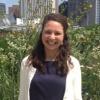Our Vision
Our vision is a just world without poverty. We want a world where people are valued and treated equally, enjoy their rights as full citizens, and can influence decisions affecting their lives.
Our Purpose
Our purpose is to help create lasting solutions to the injustice of poverty. We are part of a global movement for change, empowering people to create a future that is secure, just, and free from poverty.
Achieving our Purpose
We use a combination of rights-based sustainable development programs, public education, campaigns, advocacy, and humanitarian assistance in disasters and conflicts.
We challenge the structural causes of the injustice of poverty, and work with allies and partners locally and globally.
Resources
Displaying 121 - 125 of 128Land reform, poverty reduction and HIV/AIDS
The paper offers proposals for integrating understanding of and response to the pandemic into land reform-related development activities.
¿Por qué los derechos colectivos sobre la tierra son importantes para todos?
Impulsar la igualdad de género en la tenencia de tierras empoderaría a las mujeres y les proporcionaría una mayor influencia en la toma de decisiones relativas al uso de la tierra.
The importance of land tenure to poverty eradication and sustainable development in Africa: Summary of findings
This paper draws out the key links between land tenure and poverty eradication. The author argues that in countries where land distribution remains highly inequitable, effectively designed and targeted, it could be a key component of anti-poverty strategies, but significant complementary measures, notably agrarian support services, are also required to achieve real impacts, together with investments in employment and economic diversification.
How tree cover affects groundwater resources across African tropical drylands
General
An estimated 80% of the global population lack secure water resources. Many also lack ready access to fuel wood and other tree derived benefits. However, the current scientific paradigm says that we must choose which problem to solve as increasing tree cover always reduces water availability. Consider the costs if this thinking is wrong. In Africa, 175 M ha of degraded lands are judged suitable for tree planting which could significantly enhance people’s livelihoods. Our previous research in the seasonally dry tropics indicates that an intermediate tree cover can often improve groundwater recharge. This need testing on a larger scale, but if confirmed will upend the prevailing view in hydrology and have profound implications for policies affecting millions of livelihoods and the environment. Thus, the aim of this project is to provide evidence for better policies and management that will benefit poor people in drylands by evaluating the novel “optimum tree cover theory” for groundwater recharge across African drylands. The project involves four leading institutions; SLU, ICRAF, WU and NMBU. We will use the Land Degradation Surveillance Framework; a unique dataset that is available across Africa. It consists of multiple variables, including tree cover and key soil variables. We will do complementary strategic measurements of soil water flow and tree water use to model groundwater recharge as a function of tree cover under common conditions of the seasonally dry tropics.
Legal training to help guarantee human rights in Guatemala
General
To improve basic legal knowledge among residents of rural communities so that they are empowered to claim their human, resource and land rights from the authorities, and to deepen the knowledge of the applicant's team of legal advisors so that they are strengthened in the long term in their advisory and policy-making roles





